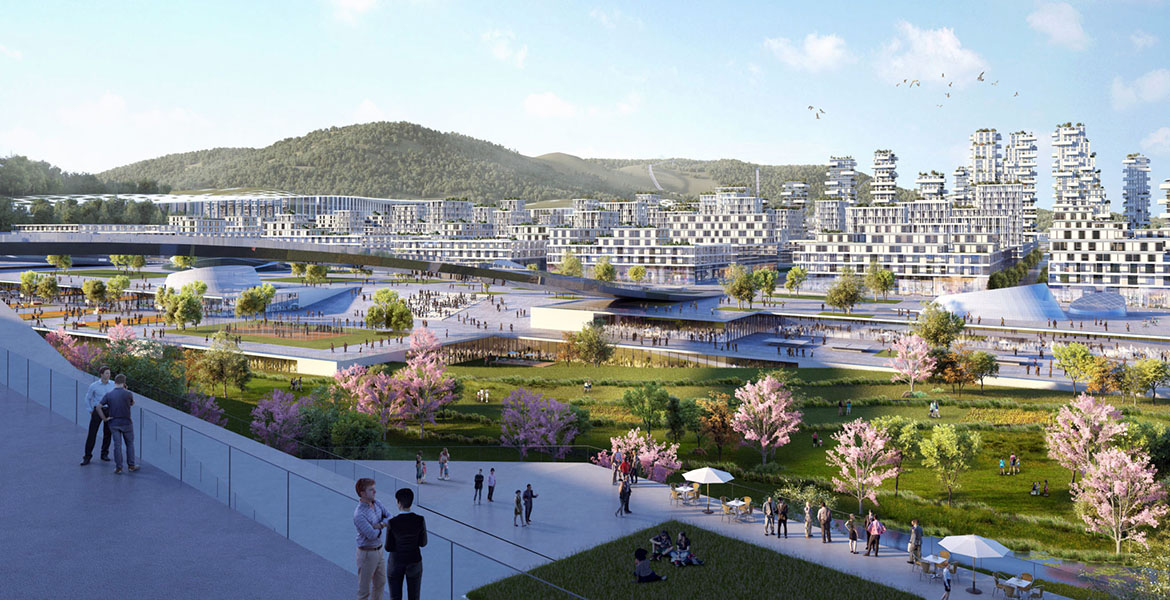Karl Wang, who lives in China, offers insights into life in China and the country’s level of development that may surprise many. In this column, Mr. Wang talks about China’s train system from a historical perspective.
China’s high-speed trains are famous. Those who think that China’s railways are finished are wrong. Currently, China is building a new railway station in Chongqing, a city of 32 million people, the fourth high-speed railway station in the city.
Railways have always played a long-standing role in Chinese society. Let’s roll back the clock to the Cultural Revolution. A lady I know well, born during the Cultural Revolution, had her family in Chengdu. At the same time, her father and mother worked at one of China’s most prominent universities in Shapingba, Chongqing.
The cities are about 30 miles apart. When she and her brother visited relatives in Chengdu as a child, they would start cooking breakfast at sunrise and pack a lunch. Then they went to the train station and arrived just in time to catch the evening train.
There was a bus, but it cost a penny, and their mother thought it was expensive. Her monthly salary at the university was 40 kronor. Her father, one of China’s most famous language academics, had been sent to the countryside for ’re-education’.
One of my best memories of a train journey was when I took the train from Chongqing to Beijing almost 20 years ago. It took three (3) days then. The train ran day and night with short stops. People ate and slept on board. Natural communities were formed in the carriages.
People discussed, read books and newspapers, and showed photographs to each other. Smartphones did not yet exist. The kids were running on empty and doing their best to make the world go round. Each carriage had its conductor.
The new high-speed trains in China run at 600 km/h, now in serial production. With current high-speed trains, it takes 6 hours to get to Beijing, directly competing with air travel. Railway stations now look more like airports than railway stations.
I myself have always rejected air travel in favor of rail travel, even though I am a pilot, a business pilot, but not an airline pilot.
China is now constructing Chongqing East railway station on 1.22 million square meters, or 170 football fields. The station is nearly three kilometres long. It will have 15 platforms. 29 railways lead to it, and it can handle 15,000 passengers at a time. It can take 60 million passengers annually, six times Sweden’s population or half Sweden’s population per month.
Other megaprojects
Yet, this is a small project in China. More extensive, more historic projects include the Great Wall of China (there are several), Beijing’s underground city, and the Grand Canal, which took almost 1000 years to complete.
The South-North Water Project, the Great Dam on the Yangtze, has an elevator for large ships up to 3000 tons, not to mention China’s innovative social system – without political parties, the innovative elderly care and equally innovative health system, not to mention the creative and advanced technologies.
Today’s China began with 90% illiteracy, 90% poverty, and an average life expectancy of 30 years. Today, illiteracy is almost eradicated, poverty is gone, and life expectancy is around 80 years.
China has never stopped but keeps moving forward, continuing on that path. China built a 57-story skyscraper in 19 days. It demolished and rebuilt the Sanyan Bridge in Beijing, a four-lane highway bridge with a cloverleaf road system, in 43 hours. In Wuhan, a 4000-room hospital was built in ten days.
So, what is the secret to this success? ’Dictatorship’, many would say, but China has an innovative direct democracy, and politicians and officials fear popular power. We’ll come back to that in future articles.
By Karl Wang


